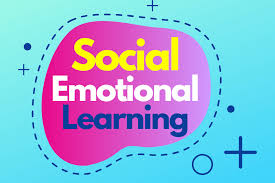Empathy Unleashed: How Social Emotional Learning Books Nurture Children's Compassion

In today's fast-paced world, fostering empathy in children is more crucial than ever. Empathy, the ability to understand and share the feelings of others, is a foundational skill that promotes kindness, cooperation, and positive relationships. Social Emotional Learning (SEL) books offer a powerful tool to cultivate empathy in children while addressing their emotional development. In this blog post, we'll explore the significance of empathy, the role of SEL books in nurturing it, and practical tips for using these books effectively. Let's dive in!
Why Empathy Matters
Empathy forms the cornerstone of healthy social interactions and is instrumental in building strong, supportive communities. Research shows that empathetic individuals are more likely to demonstrate prosocial behaviors, such as helping others, resolving conflicts peacefully, and collaborating effectively. Moreover, empathy fosters a sense of connection and understanding, reducing instances of bullying and promoting inclusivity.
The Role of SEL Books
SEL books serve as invaluable resources for cultivating empathy in children by providing engaging narratives that explore diverse perspectives, emotions, and experiences. Through relatable characters and compelling storylines, these books offer children opportunities to step into the shoes of others, understand different viewpoints, and navigate complex emotions. By depicting characters facing challenges, making choices, and showing compassion, SEL books encourage empathy development in a safe and supportive environment.
Tips for Using SEL Books to Foster Empathy
Choose Age-Appropriate Books: Select SEL books that are developmentally appropriate for your child's age and comprehension level. Look for stories with relatable themes and characters that resonate with your child's experiences.
Discuss Characters' Feelings: Engage your child in conversations about the emotions and experiences of the characters in the book. Encourage them to identify with the characters' feelings and perspectives, asking open-ended questions to prompt reflection and empathy.
Explore Real-Life Connections: Help your child make connections between the events in the book and their own experiences or observations in the real world. Discuss how they would feel in similar situations and brainstorm ways to respond with empathy and kindness.
Encourage Perspective-Taking: Encourage your child to consider different viewpoints and imagine themselves in the shoes of others. Prompt them to think about why characters behave the way they do and how their actions impact those around them.
Foster Empathy in Action: Empower your child to translate empathy into action by brainstorming ways to help others or contribute to their community. Encourage acts of kindness, such as writing a thoughtful note, lending a helping hand, or standing up for someone in need.
Social Emotional Learning books offer a powerful avenue for nurturing empathy in children, promoting emotional intelligence, and fostering positive social behaviors. By incorporating these books into your child's reading routine and engaging in meaningful discussions, you can help them develop empathy skills that will serve them well throughout their lives. Let's harness the transformative power of SEL books to cultivate a more compassionate and empathetic generation.
